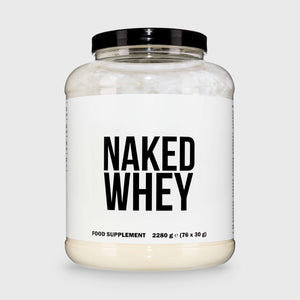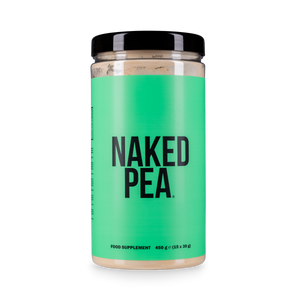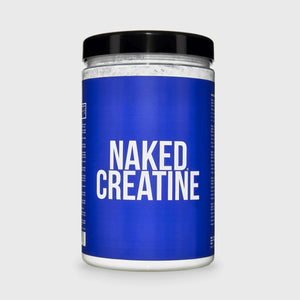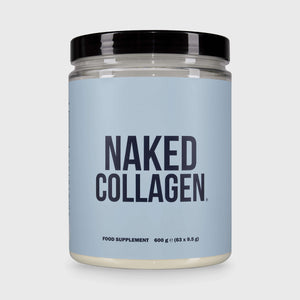Creatine supplements are one of the most popular nutritional supplements on the market. Known for increasing muscle mass, taking creatine supplements is quite common.
Creatine supplementation may even play a role in hormone function and there is some debate over whether it can increase testosterone.
Many men are looking for ways to increase testosterone, without utilizing a performance enhancing drug.
This article will explain how creatine might play a role testosterone levels.
What is creatine?
Creatine is a natural substance made from two amino acids, arginine and methionine.
Creatine is located primarily within muscles and in the brain. Many people take creatine supplements in the forms of creatine monohydrate or hcl to boost muscle mass and muscle strength, improve recovery time after exercise, and even enhance brain function.
Creatine is one of the most widely studied nutritional supplements due to its ability to enhance muscle growth, especially when paired with resistance exercise.
Some people choose to take creatine with their pre-workout, while others find that creatine helps them best when taken after exercise. Ultimately, there is no one best time to take creatine and it come down to personal preference.
How does creatine work within the body?
The body produces some creatine naturally, however, people also get creatine from food sources like meat and seafood as well as from taking a creatine supplement.
Supplementing with creatine can help muscle creatine stores, ensuring the body has a solid store of energy for intense resistance training workouts.
Creatine is stored in the muscles as a compound called phosphocreatine, which can be broken down and utilized for energy when it's needed. Phosphocreatine is a form of stored energy.
What is ATP?

When the body needs creatine for energy, it breaks down this molecule and forms adenosine triphosphate, or ATP, which is a high energy molecule and the main source of energy for most processes in the body.
Whenever ATP is used for energy, it loses a phosphate group and becomes adenosine diphosphate (ADP). ADP can't really do much for you unless it picks up another phosphate to replace the one it lost. That's where creatine phosphate comes in. It gives up it's phosphate to ADP, creating ATP to make more fuel.
In other words, taking a creatine supplement like our creatine monohydrate powder can lead to up to 20 percent more energy production than if you relied on your body's natural creatine stores alone.
Does creatine have an impact on hormones?
Creatine's role in the body is complex and goes beyond energy production. In fact, creatine supplementation can impact hormones as well.
Creatine targets anabolic hormones, which is its main pathway for its influence on muscle growth and exercise performance.
The two anabolic hormones it impacts most are insulin-like growth hormone 1 (IGF-1) and testosterone.
Creatine and IGF-1

Studies suggest that oral supplementation of creatine is linked to an increase in insulin like growth hormone 1 production in the body. IGF-1 is an anabolic hormone, also known as a growth hormone, meaning that it encourages skeletal muscle growth.
Creatine supplementation increases peoples' body stores of creatine, which is utilized during exercise to improve physical performance. Research suggests that those with higher levels of the growth hormone IGF-1 have superior fitness levels.
Does Creatine Increase Testosterone?
In addition to enhancing muscle growth, creatine supplementation has also been suggested to increased testosterone.
Athletes should care about their testosterone levels as testosterone plays a vital role in muscle mass, strength, endurance, and energy.
One study found that supplementing creatine combined with a 10-week strength training program led to improved strength and increased levels of testosterone when compared to the placebo group.
The indirect relationship between creatine and testosterone

More research is needed, however, researchers concluded that the relationship between creatine and testosterone is likely a bit indirect.
Because creatine can boost strength training performance, and strength training can boost testosterone levels, it's understood that creatine increases testosterone levels, even if the relationship is indirect.
However, another study found that supplementing creatine did not lead to statistically significant increases in testosterone levels.
Role of testosterone in the body
Testosterone is a sex hormone that acts as the primary regulator for sex drive in men. In addition to its role in sexual health, it also regulates body composition factors such as body fat distribution, muscle mass, and bone density.
As men age, they produce less testosterone. In fact, levels start to decrease as early as thirty years old. After some time, men may notice effects such as:
-
Decreased endurance
-
Decreased strength
-
Mental fog
-
Decreased energy
-
Low libido
-
Impaired cardiovascular health
As men age it's important to focus on ways to increase testosterone levels to promote and maintain good physical fitness. Plus, normal levels of testosterone promote anti inflammatory effects which can support overall health, and may even improve recovery time after exercise.
What happens with low testosterone production?
Low testosterone levels can negatively impact sleep, mood, and sex drive.
Additionally, exercise performance may be hindered and individuals may find themselves struggling to lift heavier weights despite consistent effort at the gym. Not only will energy likely decline, but a reduction in testosterone has been linked to impaired focus which can impair performance.
Plus, getting poor sleep and feeling fatigued is bound to negatively impact one's ability and motivation to push themselves during exercise, ultimately stalling progress.
Low testosterone can also reduce bone density.
However, creatine may be able to mitigate these impacts and in turn lead to a significant increase in testosterone.
What Else Can Impact Testosterone Levels?

There are many factors that can impact testosterone levels. The following sections will explain some key health habit that can impact testosterone levels.
Testosterone and diet
A diet high in refined carbohydrates, processed meats, and added sugars has been linked to low testosterone production.
To encourage healthier testosterone production, it's best to focus on a diet rich in whole, unprocessed foods. Including plenty of lean meats, whole grains, fruits, vegetables, nuts, and seeds is ideal for optimizing healthier hormone levels in the body.
Testosterone and stress
Stress has also been shown to take a toll on testosterone levels.
Higher levels of stress have been associated with increased cortisol levels, which in turn can impede testosterone production. Not to mention, higher stress levels tend to negatively impact sleep which is not healthy for hormonal health.
So while creatine may help raise testosterone levels, it's important to incorporate other look at other health-promoting behaviors such as reducing stress, improving your diet, and getting good quality sleep.
The next section will explain another way to increase testosterone.
Does Testosterone Increase After Exercise?
There is some research to suggest that exercise itself can affect testosterone levels immediately after exercise.
Testosterone production rises for short periods of time after exercise, however, this increase depends on the individual. Many bodies naturally have elevated testosterone for approximately 15 minutes after exercise, while younger men may experience longer periods of elevated testosterone.
While more research is needed, it is suggested that creatine may extend the time frame that testosterone is elevated, especially when taken after a workout.
Is cardio or strength training better?
While both cardio and resistance training are important, studies suggest that when it comes to promoting higher levels of free testosterone, engaging in strength exercise has a more profound impact.
However, cardiovascular exercise seems to play a role in testosterone levels, too.
Is Creatine Safe to Take?
A key component to healthy supplementation is safety. There is a lot of misinformation out there claiming that creatine is a stimulant and may not be safe for everyone. There are brands that add creatine to products such as pre-workout that do include stimulants, but creatine on its own is not a stimulant.
Creatine is actually a naturally-occurring substance in the body, made from amino acids. Several studies have indicated that taking creatine is safe. In fact, the International Society for Sports Nutrition (ISSN) has stated its stance on the safety of this supplement, recommending that taking 3-5 grams per day for up to 5 years is safe and well-tolerated.
Taking more creatine than the recommended amount may lead to side effects like water retention.
Are There Side Effect To Taking Creatine?
Some people may experience some mild side effects from creatine such as water retention and digestive discomfort, however, these symptoms typically reside as the body adjusts to taking creatine. Some people raise concern over the potential of slight weight gain, however, it's important to understand that fluctuations in weight may only be a result of fluid shifts in the body.
Like any other nutritional supplements, it's best to choose a high-quality product free of artificial ingredients.
If you take more creatine than recommended, you may also put yourself at risk for impaired kidney or liver functions, which is why it's important to stick to the recommended dose.
How Should I Take Creatine?

Creatine is quite simple to integrate into your routine. Sports nutrition experts and dietitians alike recommend simply mixing a serving of creatine into your favorite beverage or protein shake.
Creatine easily mixes into a variety of products, so choose something that you enjoy.
As with any supplement, consistency is key in order to reap the most benefit. Even on rest days, creatine is helpful to boost muscle stores, and ultimately increase testosterone levels .
There is some evidence to suggest that the benefits of creatine are optimized when taken with protein and carbohydrates. Simply blend in your favorite protein powder along with fruit and milk for a nourishing and delicious shake.
The Takeaway
Supplemental creatine in the form of creatine monohydrate helps to maximize your body's muscle stores and increase energy production during a workout.
Taking creatine is associated with increased levels of testosterone in athletes, especially after exercise.
It's important to understand that more research on this topic is needed and it's difficult to assess if creatine itself can increase testosterone after exercise, as testosterone levels are naturally increased after exercise anyway.
However, it is understood that creatine can improve athletic performance by increasing the process at which adenosine triphosphate, or ATP, is produced in the muscles. With more energy, endurance and strength will improve, which leads to more testosterone production.
While there are many ways to increase testosterone, it is promising that those who supplement creatine may benefit.







